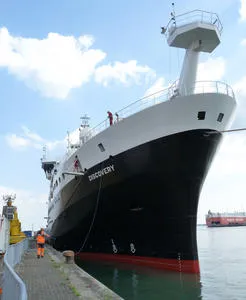
Over 100 marine professionals gathered at the National Oceanography Centre for a workshop on new technologies for monitoring the marine environment.
The UK Integrated Marine Observing Network (UK-IMON) workshop last week aimed to identify technologies that, in the future, will provide both the greatest cost savings and the greatest advances in data resolution. The event attracted representatives from across the marine community, including scientists, oil and gas experts, vendors and policy makers.
International experts provided overviews on different marine monitoring technologies, including conventional platforms such as ships, buoys and landers, as well as autonomous systems, sensors and using satellites to monitor the oceans remotely. Discussions ensued on how to prioritise new technologies, in terms of where investment from Government, research and industry should be channelled.
With increasing political, environmental and financial drivers for more detailed and extensive observations of our seas, there is a demand for reliable and cost-effective technologies for ongoing observation of the marine environment.
Dr Henry Ruhl, Head of the DeepSeas Group at the National Oceanography Centre and member of the workshop organising committee, expressed excitement at how these technologies are advancing: “Many ideas have progressed from being experimental to operational – and at a faster rate than expected,” he said. “This means that the technology will be able to be used more widely.”
The organisers hope that one output from the workshop will be proposals for funding for the most promising technologies, so that they may be more viable for use in the UK’s observing network.
The workshop was organised by the Institute of Marine Engineering, Science and Technology (IMAREST) and UK-IMON, and funded by the UK Department for Environment, Food and Rural Affairs (Defra).